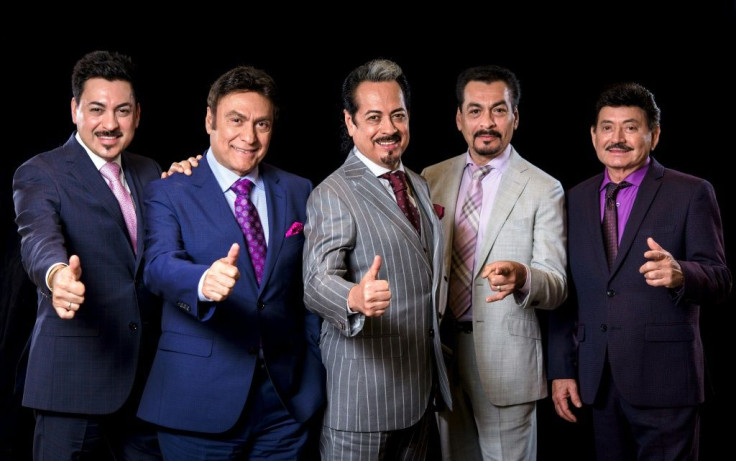Tigres Del Norte, Latin Legends Following In Footsteps Of Johnny Cash

In 1968, when music legend Johnny Cash was giving his iconic concert at Folsom Prison, Los Tigres del Norte were newly arrived Mexican immigrants dreaming of making it big in the United States.
Five decades later, the band -- now legends in their own right -- are back in Mexico promoting their latest album: a tribute to Cash recorded live in concert at the same California prison, many of whose inmates are Latino.
The album and accompanying Netflix documentary, "Los Tigres del Norte at Folsom Prison," are a fitting capstone for a band that is arguably the Latino answer to Cash: country boys who shot to fame with songs of outlaws, prisoners and rebels.
Cash, the baritone-voiced "Man in Black," left an indelible mark on country, rock and gospel music before his death in 2003 at age 71.
A devout but troubled Christian who called himself "the biggest sinner of them all," he made his famous stop at Folsom State Prison on a long spiritual journey that saw him go from an alcohol- and drug-abusing bad boy to a singer of penitence and redemption.
Los Tigres del Norte are musical bad boys, too. Famous for their "narcocorridos," or songs chronicling the lives of drug traffickers, they have faced fines and bans in Mexico for allegedly glorifying criminals.
Like Cash, though, they laced their songs to the inmates at Folsom with a deeper message: in their case, a reflection on what it means to be Latino and "illegal" at a time when immigrants like themselves are regularly portrayed as criminals by US President Donald Trump.
"We're very worried" about the current political climate, guitarist Luis Hernandez told AFP in Mexico City.
"Life in the US is very tough for immigrants. They're constantly putting obstacles in your path, giving you different rules. The only answer... is getting out the vote, uniting as Mexicans and Latin Americans to show our strength and achieve a change."
Latino power
Hernandez, the youngest Tigre, at 45, is one of the five members of this literal band of brothers. The others are his siblings Eduardo (54, accordion), Hernan (61, bass) and Jorge (66, vocals), plus their cousin Oscar Lara (69, drums).
Past members include two more Hernandez brothers, Freddy and Raul.
Natives of the village of Rosa Morada, in the lawless state of Sinaloa, in northwestern Mexico, the Hernandezes founded the band in the late 1960s and soon hopped the border to San Jose, California.
Their name, which means "The Tigers of the North," is a nod to both their cross-border lives and their musical style, "norteno," or northern music, Mexico's accordion-heavy equivalent of country.
Los Tigres have achieved huge success on both sides of the border, selling more than 40 million albums and racking up seven Grammys.
Now naturalized US citizens, they say, like many Mexican-Americans, that they often live their lives in between one identity and the other.
"We're not from either here or there," said Luis.
"The only way we can make a difference is by passing our culture and our roots to the next generation, explaining where we come from and why we go to a country like the United States," he said of the band's music.
"We're trying to build young people's consciousness, encourage them to get an education, so they don't end up like some of the inmates who tell their story in the documentary, who didn't get a chance to study and got led astray."
Eduardo said the band -- who originally arrived in the United States with 90-day visas, which they overstayed -- particularly identified with one group of inmates.
"There is this problem at Folsom Prison: inmates who are undocumented immigrants, and who will be deported after serving their sentences, after being there for so many years," he said.
The accordionist called Trump's anti-immigrant attacks "outrageous."
The band, which publicly supported former president Barack Obama, is working to get out the Latino vote when Trump stands for re-election next year.
"A lot of what happened to us the last time (2016, when Trump won the presidency) was because the majority of Latinos didn't vote," said Luis.
© Copyright AFP 2024. All rights reserved.











